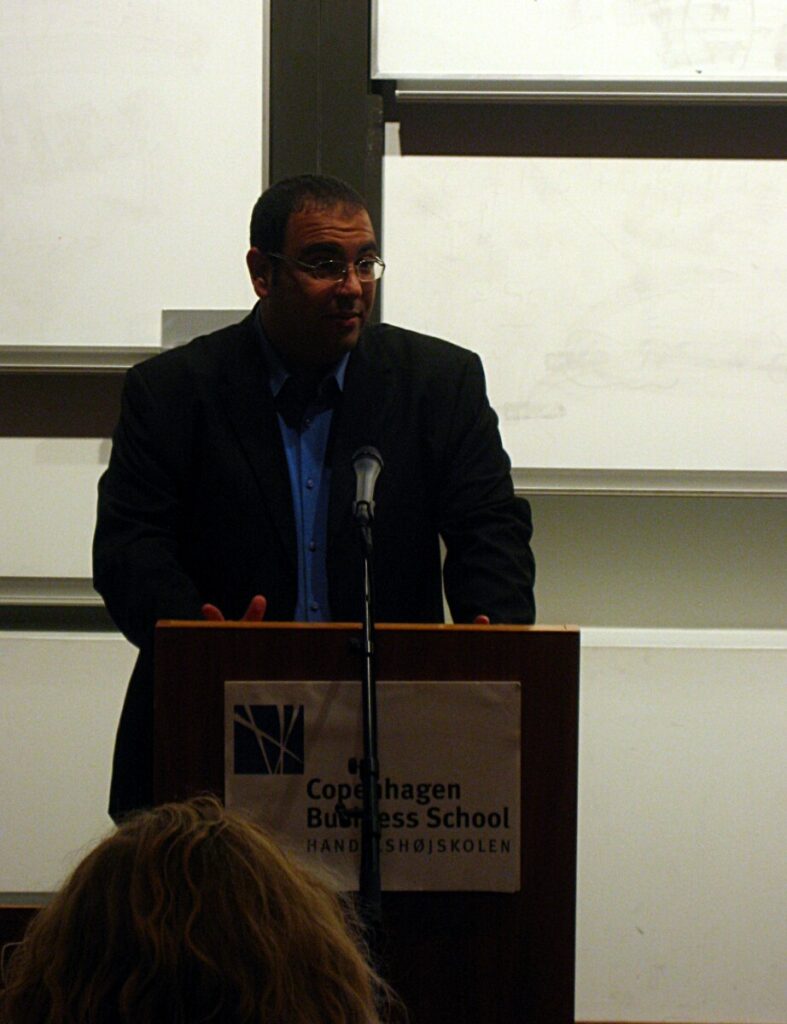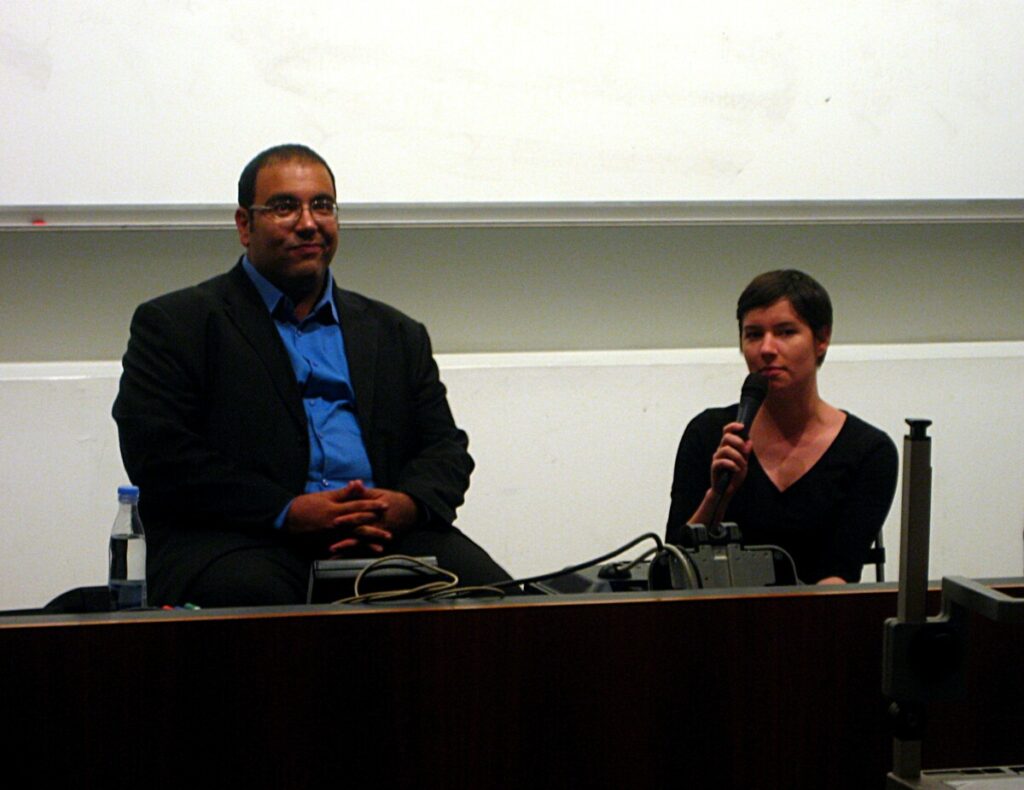What I really wanted to know was, what will the future of Egypt look like? This evening at Copenhagen Business School Mahmoud Salem, also known as the famous Egyptian blogger Sandmonkey, was scheduled to visit and give his account of his involvement in the recent uprisings in Egypt. And so I thought that this would be as good a chance as I would ever get of asking that question. Not surprisingly, he did not have an answer for me. What he could tell me is that he was working on making Egypt a better than before.

The dramatic and still on-going political changes taking place in North Africa and the Middle East right now may have started in Tunisia but Egypt showed us that these developments are not local or incidental. Furthermore, Egypt is such an important country in the region that it will likely be a litmus test for what is possible in terms of political reform in the region at large.
There is no law that says other countries will follow Egypt in its relatively peaceful footsteps. Gaddafi has decided to go down in flames and take his country with him. In Syria protesters are being fired on by the army. Bahrain is turning into a sectarian struggle and is now at risk of turning into a proxy war between Iran and Saudi Arabia. Indeed, as I am writing this the Egyptian Ministry of the Interior in Cairo is in flames.
Still, all things considered, Egypt seems to have emerged relatively unharmed out of 50 years of dictatorship with a thirst for reform and so far a reasonably credible structure for executing that change. There are many obvious perils on the path to establishing accountable governance and it was to hear more of those challenges that I had come to Copenhagen Business School to listen directly to the words of this world-famous Sandmonkey.
Mahmoud Salem is an optimist, an activist and a humorist. A practical political entrepreneur to the bone – his focus was primarily on the practicalities of how to deal with things such as tear gas (smearing coca cola on the face apparently works wonders) and the empowering effects of sharing information via Twitter as compared to the endless waiting during commercial breaks on tv networks such as al-Jazeera or CNN.
Calling himself post-ideological there were few if any grand sweeping statements, slogans or signs of party platforms in his speech. His goal is to strengthening individual freedoms, transparency and good governance through education and people outreach.
During the uprising he described how people organized freely and without leaders according to what he says can be best described as ‘volunteerism’. Doctors simply organized care for the wounded. The football hooligans, Ultras, managed security. Artists organized events. Pharmacists organized pharmacies. This gave him great hope but also exposed to him the danger of the fact that many Egyptians simply don’t understand the potential of the human being when you just let it be.

I asked him what he thought of the chances of Egypt turning out the way he wants it: accountable government, peace, stability and freedom. His answer reveals probably the extent of his incurable optimism. While earlier on in his speech he had complained of just how tired he was of the mess and constant bickering in the Middle East and North Africa, he said in his answer to me that although people were still fighting each other at the moment, that state of affairs would only last 12-18 months. Then he expected people to simply figure out that living together peacefully is the most sensible thing to do.
Please excuse me but I am slightly less optimistic than that. Like he said himself, the entire region is in a constant state of bickering and strife. This has nothing in particular to do with Mubarak or no Mubarak. Tahrir or no Tahrir. Believing that within the next 12-18 months people will suddenly calm down, treat women properly, stamp out corruption, and respect freedom of speech, religion and individual rights/liberties, etc. is, in my mind, beyond simple optimism.
When the demonstrations in Egypt where still going on in February this year I watched footage of people basically shouting two things: “Down with Mubarak” and “We want freedom”. Sometimes they would add “Freedom! Like you have it in the West.” Fair enough. But the journalists would then go on to say that “these protesters want Western-style democracy”.
To be honest, no protester on camera had actually said that. If they did off-camera, I doubt that they knew what they were talking about. Like Sandmonkey said himself: Egyptians in general simply don’t understand the potential of the human being when you just let it be. The goodwill and the hope invested by Western society and media in these people is, however, immense. Nonetheless, we must not let wishful thinking overshadow the facts on the ground: Nobody liked Mubarak. But he was not the only source of Egypt’s problems. With the help of people like Sandmonkey we can hope that things will be better from now on but I warn against believing that a free society will appear just because some people on the streets shout “freedom!”
There is work to be done – by the Egyptians themselves, thank you.